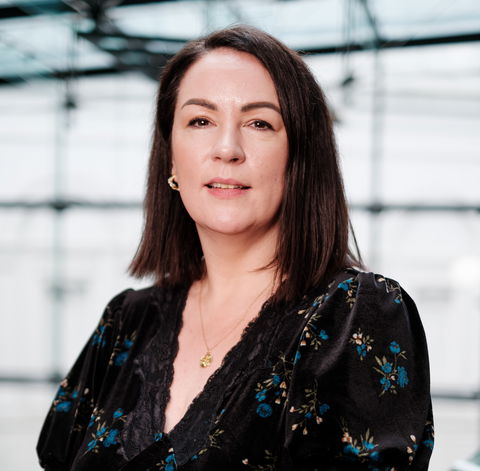By Rhonda Doyle, Country President at Schneider Electric Ireland - Ireland faces a significant and growing shortage of skilled talent in its manufacturing sector. According to ManpowerGroup Ireland’s 2025 Talent Shortage Report, 83% of employers across all sectors—including manufacturing—report serious difficulties in filling vacancies due to a lack of skilled candidates. This marks a record high for the country and the trend is expected to continue beyond 2025.

Many industrial businesses are focused on finding talent for their manufacturing and technical roles, but they need to think bigger. Industry needs an engaged, innovative workforce capable of thinking beyond the sector’s current status quo. The Irish Government’s Digital Ireland Framework, launched in 2022, aims to accelerate the nation’s digital transformation across the economy and society. This is a new era for Irish industry - and we need young people to lead the charge, bringing the energy we need.
However, there is a notable gap in STEM skills across Ireland, particularly in engineering, digital and data analytics, machine learning, and AI. This gap is increasingly evident in construction, manufacturing, building management, and facilities management, threatening industrial progress and the ability to implement energy efficiencies and reduce carbon emissions. Addressing this challenge will require a multi-faceted approach. One essential strategy is for businesses to offer viable, cost-effective alternatives to university—career paths that are rewarding and align with the drive of Gen Z and Gen Alpha, as well as being essential to Ireland’s industrial future.
Intelligent industry for an introspective demographic
If Gen Z and Gen Alpha have a vision of industrial business that looks like working on a factory line or toiling in the mines — that’s on us. Industries of today, the data centres, wind farms, modern manufacturing spaces, can feel nebulous. But modern manufacturing spaces are clean, sustainable and innovative. High-tech robotics operate in tandem with duly kitted-out and highly educated experts. A new industrial identity has arrived, but the narrative is still not there.
More also needs to be done to promote trades as a valued career path. The hurdle to overcome is working out how to make it resonate.
The answer? Exactly what I said above. Modern manufacturing is a forward-thinking industry that provides a meaningful career, one that brings together skill with purpose. This is a career path where, at the end of it, a person can feel pride in their role in the world. And this starts with visibility. Intelligent manufacturing is shooting for the moon here in Ireland. Production in manufacturing industries up 11.3% in the three months to March 2025. Turnover also soared, climbing 25% on the quarter and 37% month-on-month in March.
The irony is that few generations are better attuned to AI and automation. This technology comes as second nature to the younger generations who experiment with LLMs, image generation tools, video generation apps like Open AI’s Sora — and even agentic AI for the industrious among them. Automation and AI are at the heart of Ireland’s industrial revolution, where machines and humans work together to learn and improve and create smart factories that supercharge operations.
A match made in hein aven it might be, but reshaping perceptions of a good match will take a concerted effort. In a world of geopolitical and economic uncertainty, industrial jobs are a growth area for Ireland and hands-on apprenticeships are a competitive, viable path to well-paying and meaningful jobs. By immersing young people in smart factories and advanced production environments, they can gain first-hand insight into the sector’s innovation and career potential. Experiencing manufacturing up close, with opportunities to rotate on operations, not only builds critical skills but also showcases the dynamic, tech-driven future of the industry.
Green growth – the ultimate match
Part of the narrative must be about the stakes at play. Without clean energy, we’re looking at an increasingly inhospitable world. At the same time, we’re looking at a world where resilience must be central to every nation’s ultimate agenda. We can’t continue to rely on others for our energy security — even on the grid. That’s why distributed energy systems are such an interesting growth area, and one that younger generations could specialise in. They understand this — but we need to help them recognise that they have a role to play.
Indeed, Gen Z wants careers that put meaning at the centre. According to McKinsey’s 2024 From Hire to Inspire report, they’re seeking careers with impact. Few areas demonstrate this more clearly than the digitalisation of industry. Process controls are now available for managing energy use, reducing waste, and optimising resources in Irish industry. Smarter systems are key to improving the efficiency side of our electrification story. Electrification leads to efficiency, which leads to decarbonisation — and the circle is complete.
By getting apprentices in early, we can expose Ireland’s young people to the evolving digital technologies powering our country’s energy future — and, hopefully, with leadership from our incredible professionals, inspire their passion for embracing sustainability, getting excited about new legislation, and driving the country forward.
The talent conundrum
Attracting talent — and keeping it — will require a wholesale reinvention of how we communicate with young people. Ireland’s industry might be innovating in everything we do, but where we fall short is in presenting a compelling opportunity to the next generation. It’s not just about doing what’s good for Ireland — it’s about reshaping our industry to fully align with the values of Gen Z and Gen Alpha. Ironically, by doing so, we’ll be better positioned to achieve the very goals we’re aiming for.
In 2025, Schneider is aiming to take on another cohort of apprentices across the UK and Ireland to ‘walk the talk’ when it comes to investing in young people. These initiatives will also help us address regional skills shortages and develop future-proof workforces that will champion the green economy. By combining technical expertise with mentorship, Schneider Electric is empowering tomorrow’s innovators and ensuring a sustainable, thriving future for Ireland’s manufacturing sector.
